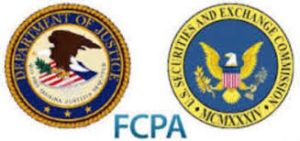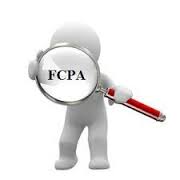The FCPA Enforcement Run Continues into 2017
 Just when we thought 2016 was over and we could all breathe a sigh of relief, DOJ and the SEC have continued to run with a string of new enforcement actions. To all of those prognosticators, paparazzi, commentators, chicken littles, and dire warnings, the answer is clear – FCPA enforcement is here to stay, compliance is a must, and increased DOJ/SEC resources are bearing fruit.
Just when we thought 2016 was over and we could all breathe a sigh of relief, DOJ and the SEC have continued to run with a string of new enforcement actions. To all of those prognosticators, paparazzi, commentators, chicken littles, and dire warnings, the answer is clear – FCPA enforcement is here to stay, compliance is a must, and increased DOJ/SEC resources are bearing fruit.
So, for us practitioners, we now have to try to catch up. I intend to address all of the recent enforcement actions in separate parts while lumping some together for convenience purposes.
Like the Justice Department, the SEC has continued its aggressive enforcement program. While everyone still predicts that Trump will make significant changes to the FCPA program, such fears reflect a lack of understanding of the DOJ and SEC FCPA enforcement program and its great success in global enforcement.
Some may explain the rush of enforcement actions by the end of the Obama Administration and a rush to resolve investigations, while others suggest that companies want to close out long-standing investigations with existing prosecutors. Both of these explanations may be right – companies do not want to “start over” with a new set of political appointees that have to sign off on the FCPA settlements, and political appointees in the departing administration may want to move as many cases as they can.
The recent cases, however, did not break out any new enforcement theories nor are any of the recent actions surprising. The Rolls Royce enforcement action has been ongoing at the Serious Fraud Office for years, and it was fully expected to be an important enforcement action. The SFO, following US DOJ precedent, built a global settlement with Rolls Royce and other countries, akin to DOJ’s Odebrecht/Braskem settlement action.
Zimmer-Biomet and Orthofix were two settlements in the long line of medical device companies violating the FCPA. Both of these cases involved recidivists that had prior enforcement actions and failed to enact adequate remediation and compliance reforms to prevent additional violations.
The Justice Department’s recent announcement of its criminal settlement with Sands Las Vegas was not unusual despite the SEC’s settlement last year for the same conduct. DOJ and the SEC typically jointly announce parallel resolutions but on occasion they have completed their respective investigations at different times.
The DOJ and SEC also brought an interesting case against a Chilean mining and chemical company based in Santiago, Chile for improper payments made to Chilean foreign officials.
All of this FCPA enforcement activity begs the question on individual enforcement. Notwithstanding the Yates Memorandum, we have yet to see any visible increase in DOJ FCPA enforcement against individuals. The FCPA Unit’s failure to bring such
 cases stands in contrast to other criminal cases recently brought against Volkswagen and Takata in which six executives and 3 executives, respectively, were indicted. In 2015, the Justice Department settled the criminal case against GM without indicting any individuals, notwithstanding the strong evidence against various executives and senior managers.
cases stands in contrast to other criminal cases recently brought against Volkswagen and Takata in which six executives and 3 executives, respectively, were indicted. In 2015, the Justice Department settled the criminal case against GM without indicting any individuals, notwithstanding the strong evidence against various executives and senior managers.
I expect that DOJ will increase FCPA indictments against individuals in 2017. The mandate is clear and the FCPA Unit has the resources to collect evidence and build cases not only against corporations but culpable individuals.















Behind any FCPA violation are culpable individuals that must be prosecuted, many of which are CEO’s, CFO’s and even board members in some cases. To give these individuals the opportunity to avoid prosecution is not the purpose of the Department of Justice.
In November, 2016, during remarks presented at the 33rd Annual International Conference on FCPA, by then Deputy Attorney General Sally Yates , she stated that ” we cannot forget that behind every bribe and illegal payment is one or more individuals who knew what they were doing was wrong and nonetheless broke the law…. we must do our best to ensure that whoever is responsible is held accountable. As I’ve seen over and over again during my career, the best way to deter individual conduct is the threat of going to jail.”
As acting AG, she is now in a position to act without restrictions on her commitment to hold responsible criminals accountable. Hopefully, the use of NPA’s and DPA’s will soon become restricted.